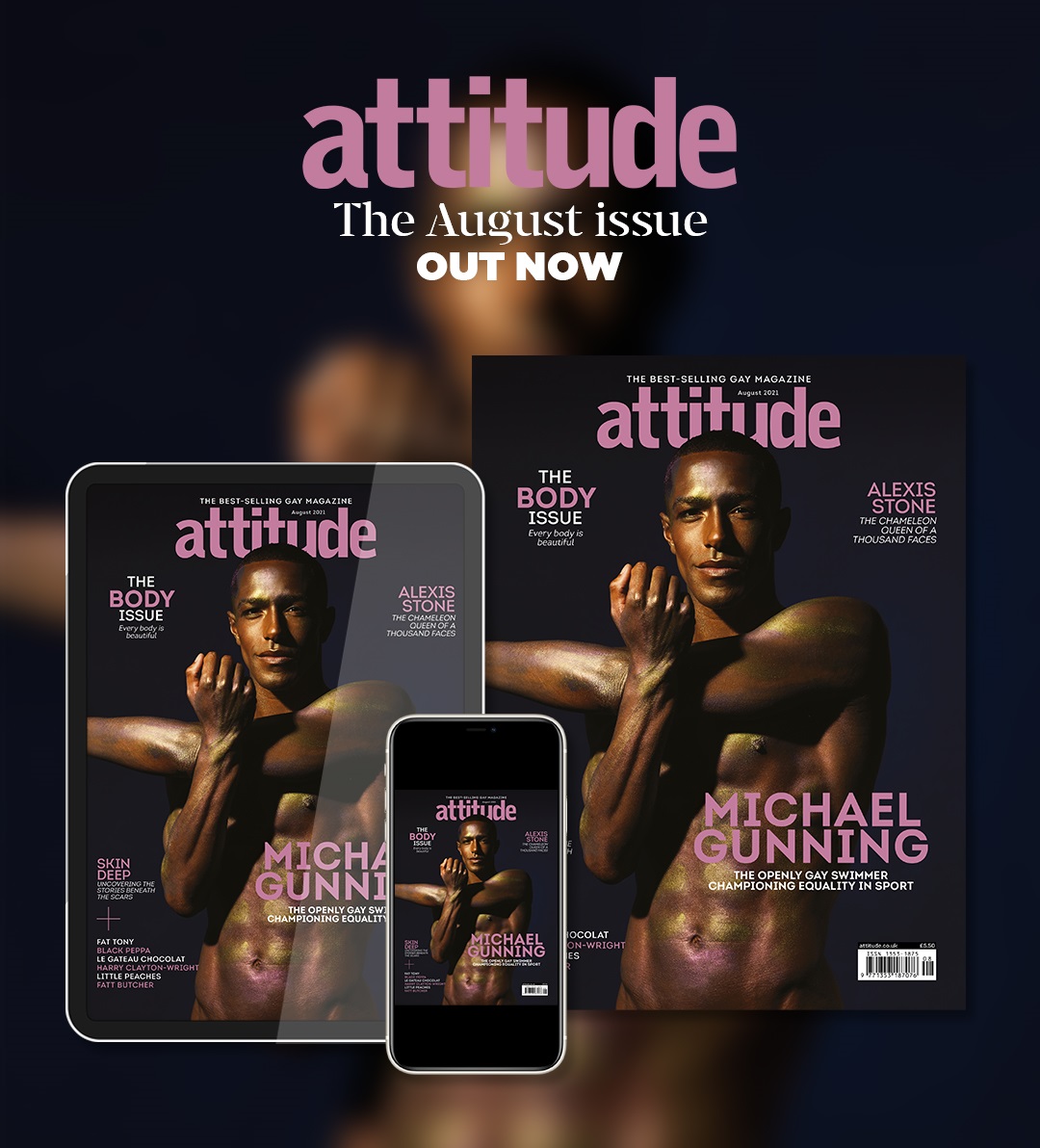Michael Gunning’s own experiences of homophobia and racism fuelled his fight for equality in sport
The British-Jamaican swimmer comes up top trunks in the Attitude August Body Issue.
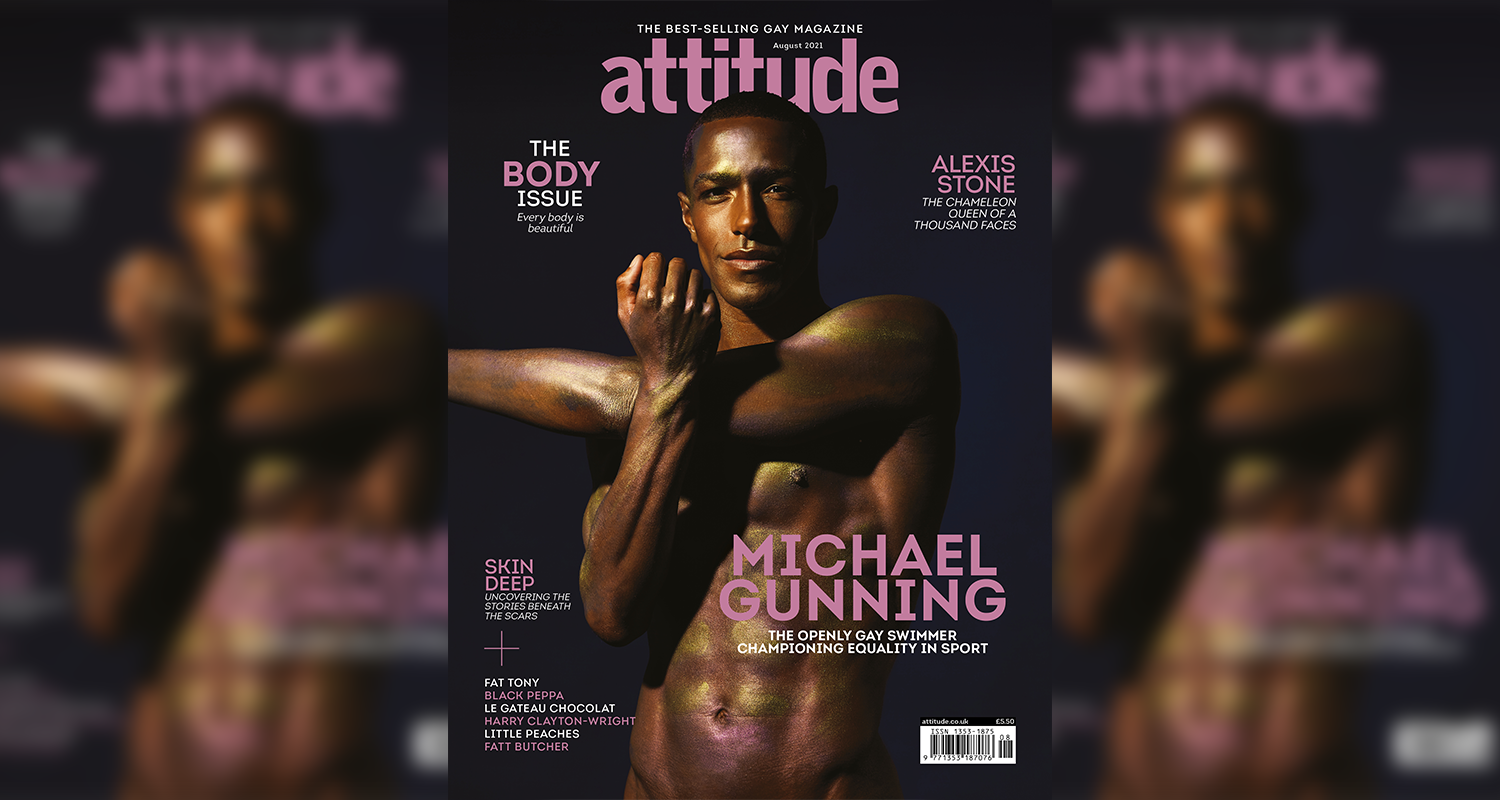
Words: Thomas Stichbury; images: Dean Ryan McDaid
Michael Gunning knows how to make a splash both in and out of the pool, as a passionate advocate for equality, diversity and inclusion in sport.
One of the few openly gay athletes, the professional swimmer has faced enough homophobia and racism over the years to gauge how much more work still needs to be done.
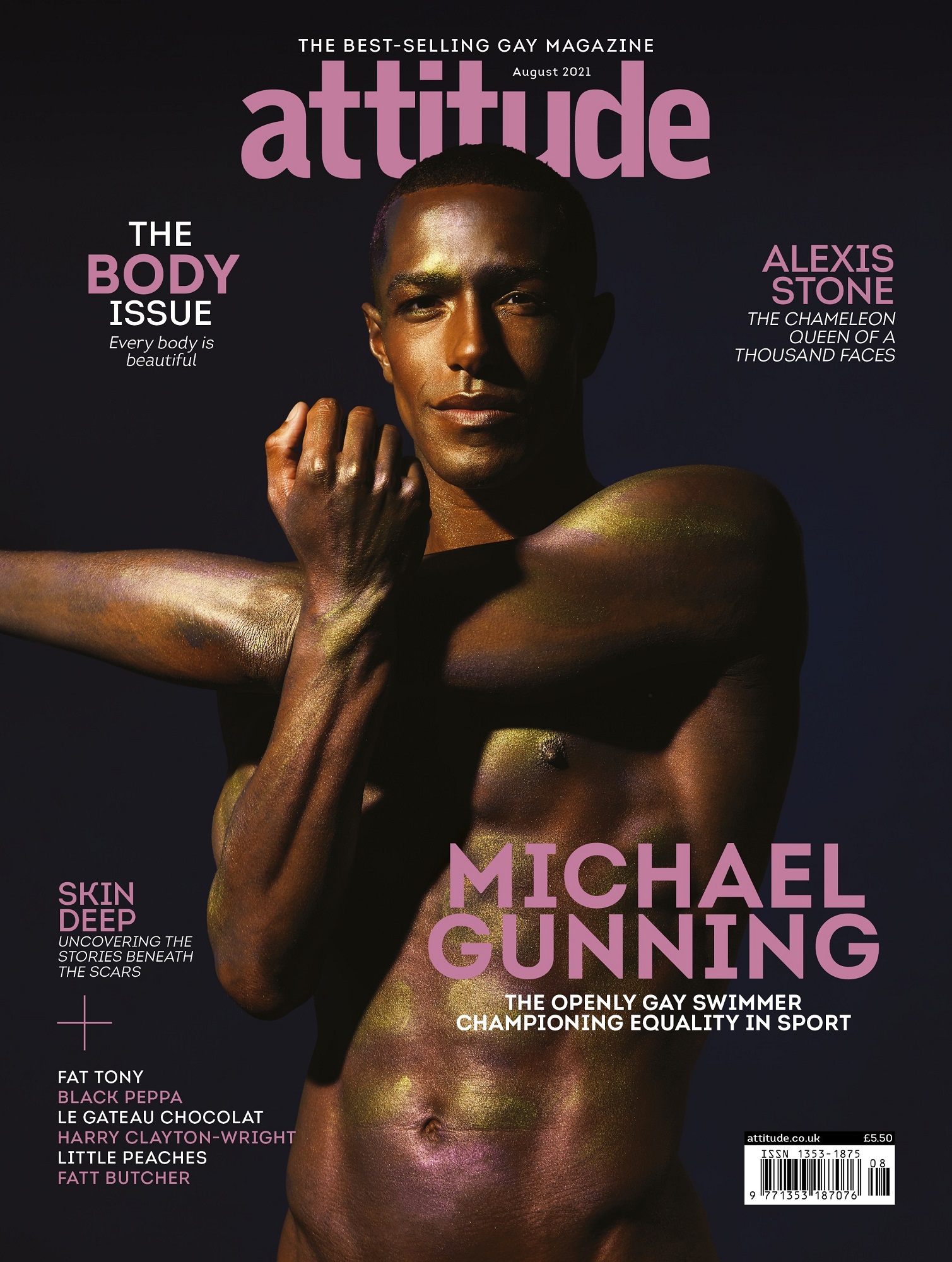
Michael Gunning for the Attitude Body Issue, out now to download and to order globally (Photography: Dean Ryan McDaid)
Diving in as a cover star of the Attitude August Body Issue, out now to download and to order globally, Michael – who publicly came out as gay whilst appearing in the 2018 reality TV series The Bi Life – recalls being given the cold shoulder by some of his peers.
“I remember the first time I’d come out and going to the World Championships… The people that love me, that know me, would hug me, but there were a lot of people that suddenly wouldn’t come up to me to ask any questions, that wouldn’t congratulate me after a swim, that kept their distance,” he begins.
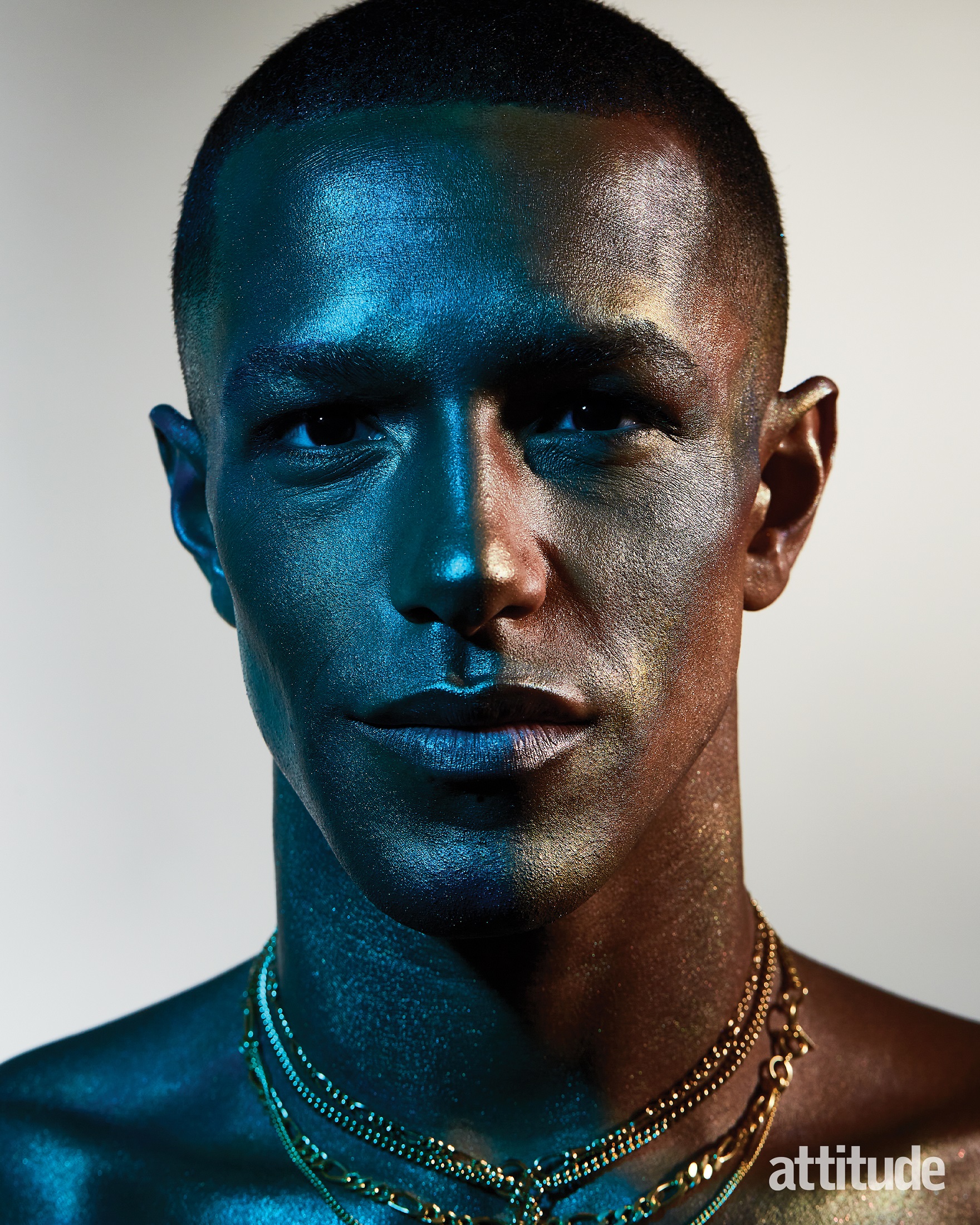
Photography: Dean Ryan McDaid
“There are those looks and that pressure that people might not want to associate themselves with me. It’s hard because I’m a positive and happy person… but the more competitions I go to, the more people are talking about it and it’s educational.”
Kickstarting his swimming career as part of Team GB, before changing lanes to represent Jamaica, the 27-year-old (who has dual British-Jamaican citizenship) moves on to discuss the impact that the Black Lives Matter movement had on him.
“With George Floyd and everything that happened, I was whacked in the face time and time again with people asking my opinion and what I thought – and it did make me think,” Michael explains, adding that he has been racially targeted in the past.
“Swimming for Team GB, I did experience racism, people, you know, [saying] Black people don’t swim, I shouldn’t be in the water, I should stay on the athletics track. All these different things people would say to me, I would just brush off, ‘Well, I’m proud to be different, I’m proud to be breaking the stereotype.’”
He continues: “My brother told me that he got stopped by a policeman. He was riding his bike, and there was a picture of him that matched the description – and there wasn’t, it was just because he was Black.
“The people around me that I loved were telling me stories and it really was an eye-opener into what society is like, and where we need to go… [like] I’ve been called ‘nigger’ before, and inappropriate language from a racial point of view.”
Making ripples when it comes to representation of race and sexuality within sport, Michael is proud of what he has achieved so far, particularly flying the flag for Jamaica, despite narrowly missing out on Olympic qualification earlier this month.
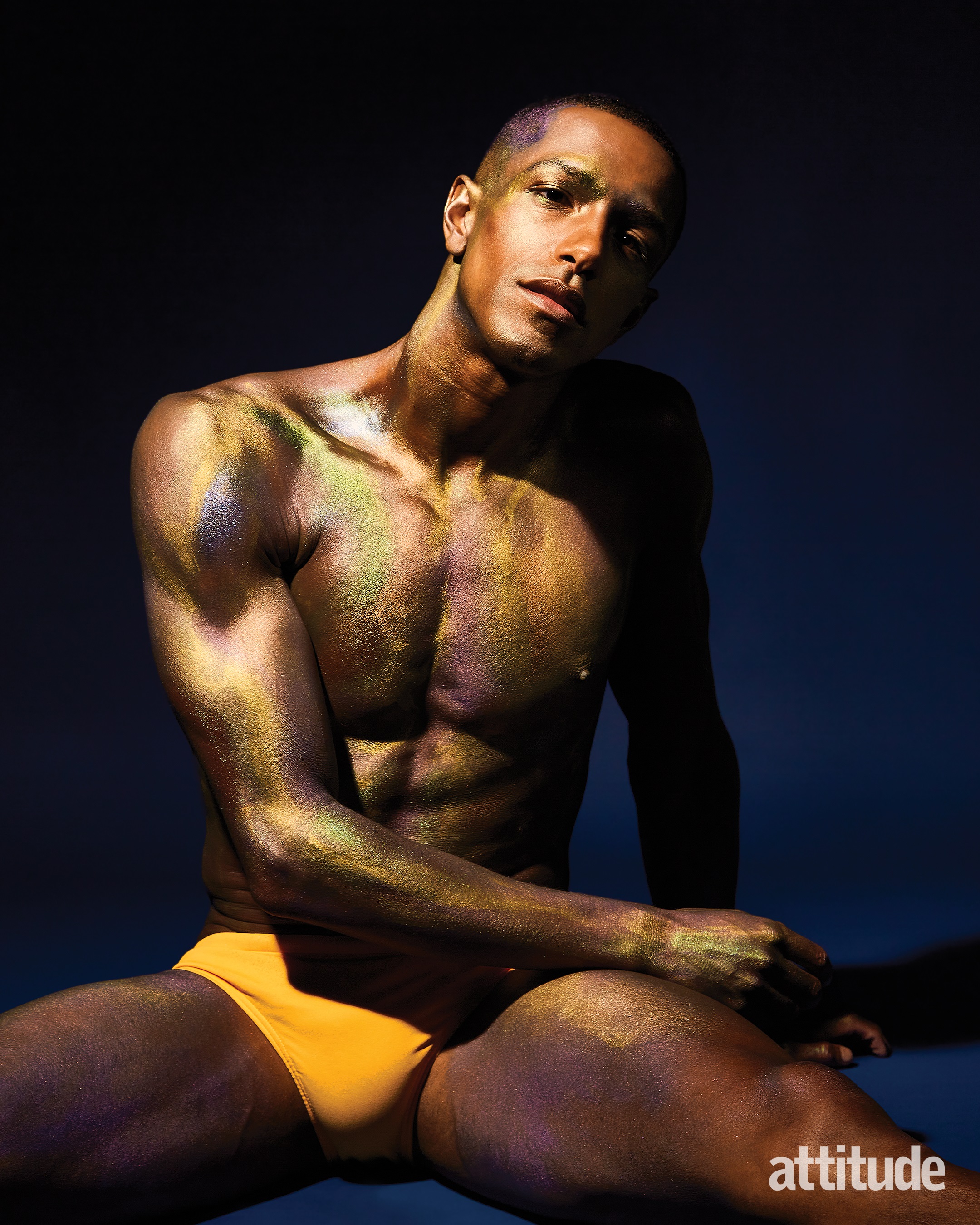
Micahel wears trunks by Speedo (Photography: Dean Ryan McDaid)
“There [was] an opportunity for me to inspire the Caribbean, all the people that really don’t like swimming – drowning is so ‘big’ out there. Jamaica is a lot about athletics, and I wanted to put swimming on the grid,” he says.
“I think 95 per cent of Black adults can’t swim in the UK, and that comes down to representation. When I look at the Olympics and the World Championships and the competitions I used to swim at, there was no one of colour representing.
“There was no one speaking openly about their sexuality [either]. For me to be in a situation now where I am that representation, people can see themselves in me.
“Hopefully, the young people coming through, I’ll be the role model I never had growing up.”
The Attitude Body Issue is out now.
Subscribe in print and get your first three issues for just £1 each, or digitally for just over £1.50 per issue.
